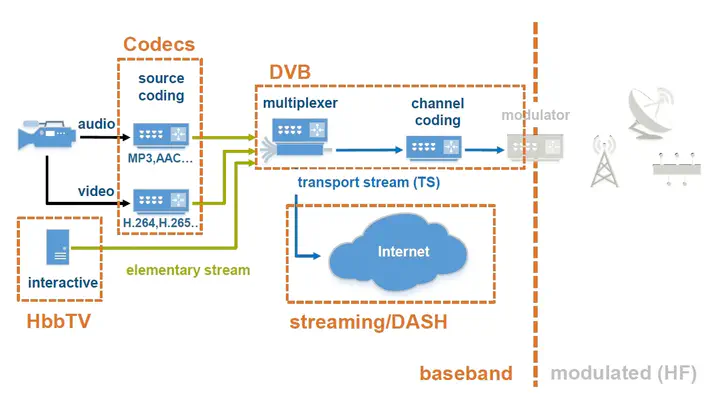Digital Broadcast Engineering

2015-2016 at Technische Universität München (Lecturer)
The course Digital Broadcast Engineering (Master level) covers both traditional linear digital broadcasting technology especially DVB, but also non-linear broadcasting via (adaptive) streaming, in particular DASH, and interactive TV. The main goal of the course is to provide the students with an understanding of today’s broadcasting landscape and the components in digital broadcasting systems. The students learn how concepts from channel coding, source coding, communications engineering and communication networks are used to design robust broadcasting systems, but also that broadcasting can be Internet-based via IPTV or OTT.
Integral part of the course is a project, in which the students implement a prototypical interactive TV broadcasting chain, from a DVB-based play-out using a table generator, multiplexer and modulator, to interactive TV applications using the HTML-based HbbTV. This allows the students to apply the theoretical principles to a practical use-case that represents the ongoing convergence of the broadcast and broadband worlds.
The results of the course’s evaluation by the participating students was above the average of all lectures at the Department of Electrical Engineering and Information Technology